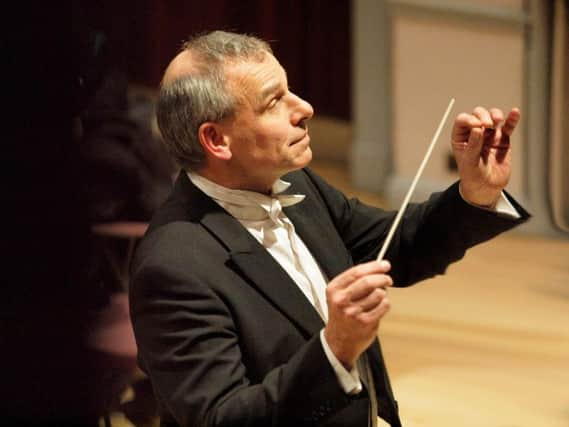Chichester Singers offer Bach’s St Matthew Passion in Chichester Cathedral


Jonathan will be directing their performance of Bach’s St Matthew Passion in Chichester Cathedral on Saturday, March 30 – and he is relishing the mutual trust.
“The singers are in great spirits, and that’s one of the benefits of having worked with them for such a long time. They know and trust me in terms of preparation, and I know and trust them that they will produce on the day.
Advertisement
Hide AdAdvertisement
Hide Ad“They are such a lovely choir to work with because they perform in such a committed and fully involved way, and that is the lovely thing about amateur choirs. It is lovely working with professionals, of course, because you have got such high skills, but with an amateur choir you know they are there because they love doing it. They are not being paid to do it. In fact, they are paying subscriptions. But they absolutely love doing it.”
And their reward in this instance is one of the very finest pieces in the choral repertoire. As Jonathan says, if he were forced to do “that awful thing” of selecting just a very, very few pieces to keep, then Bach’s St Matthew Passion would be right up there: “As we approach Easter, it is the drama of the Passion story we get, as told by the gospel of St Matthew, and we are fortunate to be joined by James Oxley as the Evangelist. He sings the entire role from memory, and it is the direct communication that you get with the audience. I have worked with James many, many times over the years. The first time I worked with him was 25 years ago. I have done a lot of performances of the Passions and he is simply the first choice because of that wonderful communication he has. He has got a wonderful voice, but it is the communication. When you are telling the story of the Passion, you are half way towards it being an opera, and in that the choir provides much of the drama, representing the crowds at the crucifixion and at his trial demanding that Jesus should be crucified. It really is the most wonderful choral work.
“This will be the fourth time with the choir, but I performed it as a chorister nearly 60 years ago. I was a chorister at Kings College, Cambridge. I was about eight or nine, and I remember it vividly. It was one of my earliest experiences that I had of taking part in a major choral work as a boy chorister. It was just an overwhelming musical experience.
“I was a chorister. I was singing in the daily services, but to be part of something with a large professional orchestra was marvellous. I think Peter Pears was the Evangelist that day. He was one of the finest interpreters of that particular role.”
Advertisement
Hide AdAdvertisement
Hide AdInevitably, with such a long association with a piece, thoughts and approaches are always evolving, as Jonathan says.
“Performance practice has become much more historically informed over the last 60 years, and whenever I hear it or listen to a performance, I am bound to be influenced by what other people are doing. But I suppose you would have to ask the longer-standing members of the choir whether my approach has changed over the years! I am sure it has. But that is the great thing about a piece such as this. No matter however many times you have done it before, it is such a glorious piece that you will always feel that you are coming to it fresh. It really is a piece that never tires in performance.”